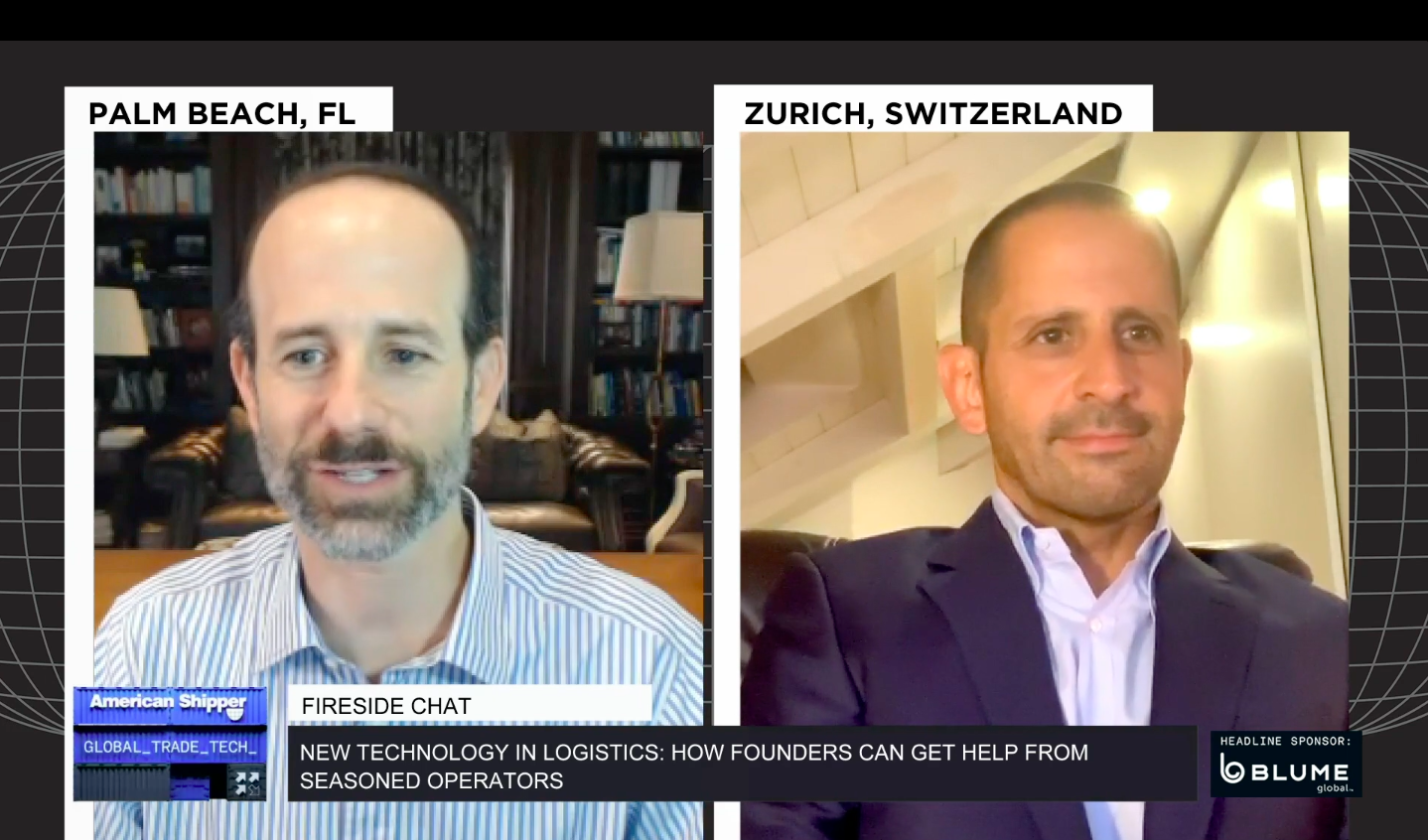
At the American Shipper Global Trade Tech summit Wednesday, Cambridge Capital managing partner Ben Gordon and operating partner Essa Al-Saleh spoke in a fireside chat, discussing trends within the logistics industry and the factors the venture capital firm looks for in a startup before investment.
Al-Saleh moved to Cambridge Capital after a long stint at global logistics firm Agility. While at Agility, Al-Saleh transformed the then-company with a market presence only within Kuwait to a $5 billion company with operations in over 100 countries today. Gordon questioned Al-Saleh on how logistics startups could look to repeat his success at Agility.
“I’d boil it down to three things. One is about finding a great team to work with that has an agile mindset. Two is to focus on what you want to do, how you want to do it and how to go about doing it. The final thing you need to be successful is a bit of luck along the way,” said Al-Saleh.
Al-Saleh explained how the supply chain industry is witnessing explosive growth, even in the wake of the COVID-19 pandemic. Widespread lockdowns and the resulting growth in online retail has led Cambridge Capital to look at investing in the e-commerce-enabled logistics opportunities the “new normal” has generated — like last-mile, automation and fulfillment.
“I think the intersection of technology and logistics is really exciting. It’s the sort of trend that’s been there for a long time. We’ve seen it for over 20 years, but the acceleration in the last six months has been unbelievable,” said Al-Saleh. “Companies in our space, in order for them to remain relevant and sustain themselves over the years, need to drive continuous improvement and innovation.”
Al-Saleh mentioned that for a company to generate Cambridge Capital’s interest, it needs to have passionate and talented founders who have clear perspectives on the market, are openly coachable and are willing to pivot in dire situations.
[embedded content]
The second factor that Cambridge Capital scrutinizes is the size of the industry problem being solved by a startup and if it is large enough to warrant an investment. “It’s just not possible to become a billion-dollar business if the niche is too tiny,” said Al-Saleh. “The third point is to see if the deal makes sense. We look for situations where the deal makes sense and the founders want us to be their partner.”
For instance, Cambridge Capital was one of the early investors in XPO Logistics. Al-Saleh explained that Brad Jacobs, the founder and CEO of XPO, ticked all the boxes as he was a serial entrepreneur creating a startup in the trucking brokerage niche — a $200 billion market opportunity.
Cambridge Capital is always on the lookout for distinct themes within the market and businesses with huge tailwind growth. Last-mile logistics is an exciting segment, as it has a highly fragmented market and will witness consolidation over the next decade.
“Top 50 companies represent not more than 50% of the total market in last-mile logistics. Compare that to banking and finance, where the top eight control 90% of the market,” said Gordon. “Consolidation remains a winning theme. Cross-border trade and automation of that cross-border will remain a big opportunity.”

